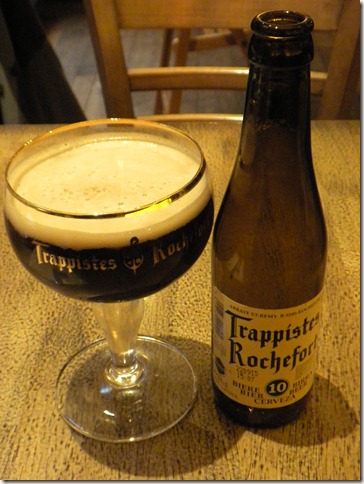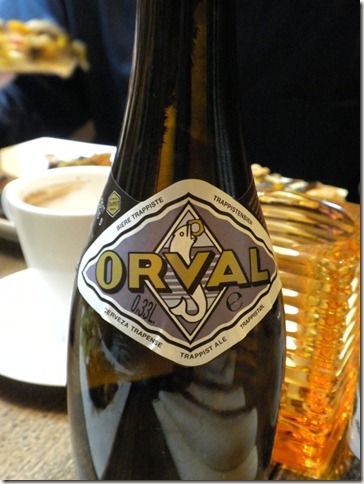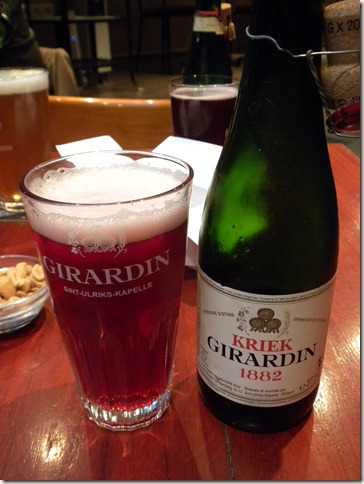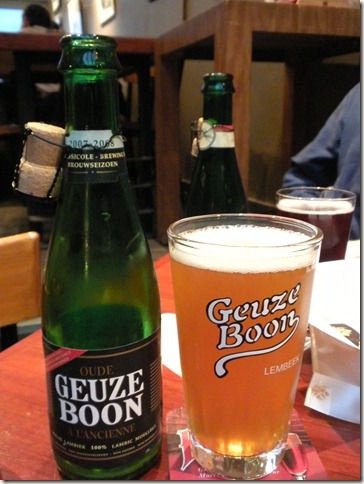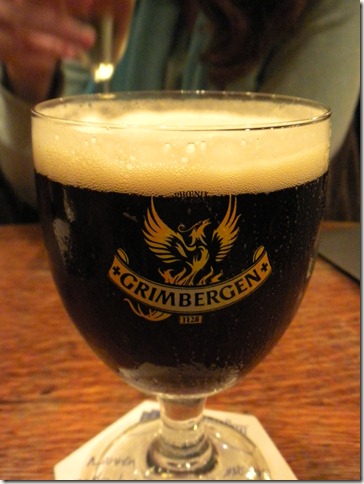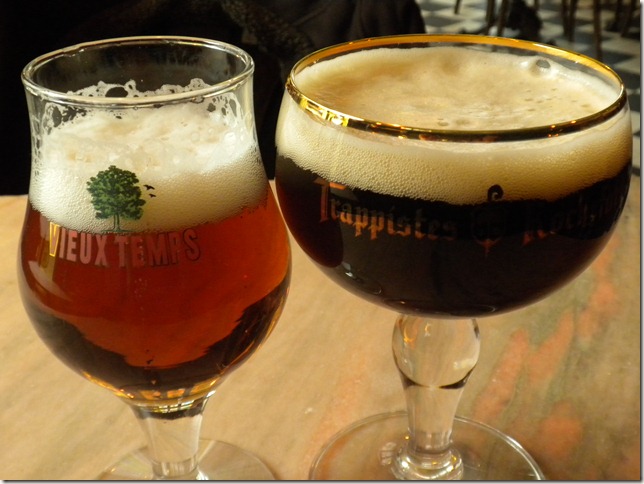Well, okay, yesterday was Pancake day, but I couldn't write this post yesterday because we were watching the incredibly frustrating
Arsenal vs. Barcelona game. But I couldn't help blogging about Pancake day, because it leads neatly into a larger discussion of silly British holidays that have food associated with them. Now, while I think it makes perfect sense to have particular foods for particular holidays (almost time to make
Hamantashen!), these British ones seem funny to Yankees like us for the same reason that most British things are funny to us: they have funny names. After I decided to write this post I realized that there are actually only 3 holidays I can think of that fit into this category, but I'll try to make my discussion of each holiday as witty and amusing as possible in order to make it worth your time.
St. David's Day: Somehow we missed this one, which was March 1st this year. St. David's day celebrates, unsurprisingly, St. David, who is the patron saint of Wales. So needless to say this day gets much more attention in Wales, but it's worth mentioning here because 1) one of the traditions of this day is to wear either a daffodil or a leek pinned to your lapel, so it fits into my category of having a random food affiliated with it, and 2) I have a funny story about St. David's day. The original story with the leeks, Wikipedia tells me, is that during one of the many times when they were fighting the English, the Welsh decided to wear leeks on their uniforms to tell the difference between the two troops.
But my story about learning about St. David's day is funnier. 5 years ago Danny and I did trivia with some friends on what apparently was St. David's day. Of course, our friend Chris knew this, and he brought leeks for everyone to wear, either tucked into your ponytail or behind your ear or wherever. We won a very difficult trivia that night (anyone know where the Gulf of Taranto is? Mike did.), under the name, wait for it. "The Leeky Cauldron". I've never seen Chris more pleased with himself when he came up with this name, except for maybe when he picked 4 gelato flavors that complemented each other perfectly.
Shrove Tuesday:...okay, I actually didn't realized until just now that is actually what the rest of the world calls Mardi Gras. But it's an honest mistake, right? I mean, come on, Shrove Tuesday? what's that supposed to mean?. But that's almost a moot point, because at this point it just goes by its more informal name, Pancake Day. Again, wikipedia to the rescue: supposedly the pancakes came into popularity so people could use up sugar, eggs, butter, and other yummies before Lent started. Now, unsurprisingly, many more people make pancakes than give something up for Lent (although I'm always surprised by the number of people who actually give things us for Lent. Though I suppose I shouldn't be surprised, since I never go to Synagogue but always keep Passover). I should point out that what the English mean when they talk about pancakes is actually crepes. We don't have our crepe pan with us, so Danny and I made old fashioned American pancakes, nice and fluffy, with a little whole wheat flour and oatmeal, cooked on a hot buttered pan, and sprinkled with cinnamon sugar. Dee-licious!
Guy Fawkes Night: this one has also picked up a more colloquial name: bonfire night. Guy Fawkes was a Catholic conspirator who was trying to assassinate King James 1 in 1605 by blowing up Parliament with a load of gunpowder. The holiday started as a celebration that the plot failed and the King survived (the King James Bible wasn't going to write itself, after all), plus a chance to burn an effigy of a Catholic terrorist. Now it's mostly celebrated by large bonfires and people setting off fireworks in their backyards, and by calling it bonfire night they can play down the sectarian origins of the story. But the desire to keep the peace doesn't prevent some people from continuing to burn an effigy of Guy Fawkes each year. To each his own. The food connection is that jacket potatoes (baked potatoes) have become the tradition food of bonfire night, because you can easily cook a potato by wrapping it in foil and throwing it in a fire. But I think these days people just throw them in the microwave instead.
Huh, I think that post ended up being kind of boring. Sorry. Really, it was all just an excuse to say, "We had pancakes for dinner last night, and it was awesome!"


